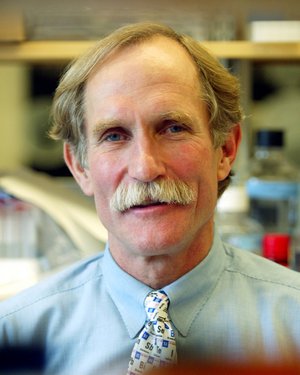Johns Hopkins' Peter Agre | Unexpected Discoveries and Their Great Potential
Background
Dr. Peter Agre is a professor of biological chemistry at the Johns Hopkins University School of Medicine. He also holds an appointment in the department of molecular biology and immunology at the Johns Hopkins Bloomberg School of Public Health.
Dr. Agre’s research has focused on the molecular aspects of human diseases, including hemolytic anemias, blood group antigens and malaria. He received the 2003 Nobel Prize in Chemistry with Roderick MacKinnon of Rockefeller University for the discovery of aquaporins, water channels that facilitate the movement of water across cell membranes.
He is a Bloomberg Distinguished Professor and director of the Johns Hopkins Malaria Research Institute.
Dr. Agre received his undergraduate degree in chemistry from Augsburg College. He earned his M.D. from Johns Hopkins. He completed a residency in internal medicine at Case Western Reserve University Hospitals of Cleveland and performed a hematology-oncology fellowship at the University of North Carolina at Chapel Hill. Dr. Agre returned to Johns Hopkins as a postdoctoral fellow in cell biology before joining the faculty in 1984.
He became vice chancellor for science and technology at Duke University Medical Center in 2005. He returned to Johns Hopkins in 2008.
Dr. Agre is a member of the National Academy of Sciences, the Institute of Medicine, the American Academy of Arts and Sciences and the American Philosophical Society. He has received honorary doctorates from universities in Denmark, Japan, Norway, Greece, Mexico, Hungary, Poland and the United States. From 2009 to 2010, Dr. Agre served as president of the American Association for the Advancement of Sciences.




Patient Ratings & Comments
The Patient Rating score is an average of all responses to physician related questions on the national CG-CAHPS Medical Practice patient experience survey through Press Ganey. Responses are measured on a scale of 1 to 5, with 5 being the best score. Comments are also gathered from our CG-CAHPS Medical Practice Survey through Press Ganey and displayed in their entirety. Patients are de-identified for confidentiality and patient privacy.